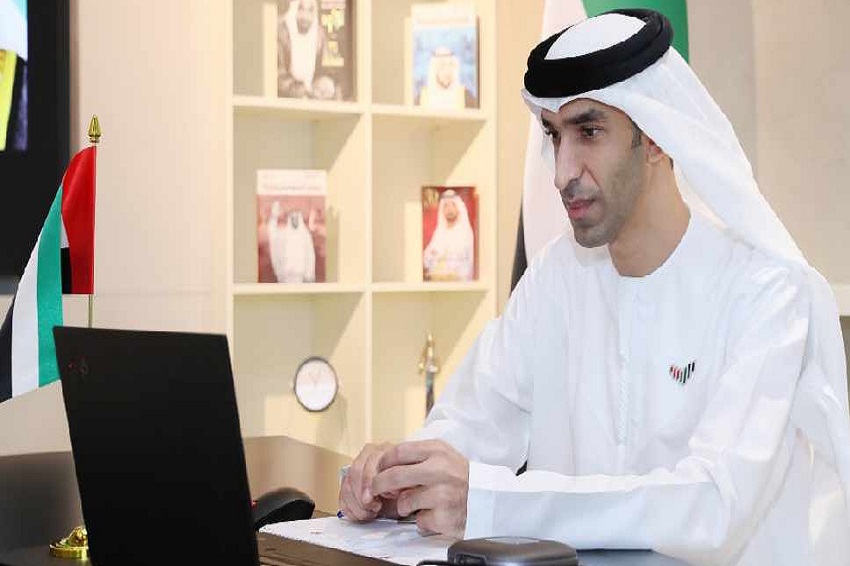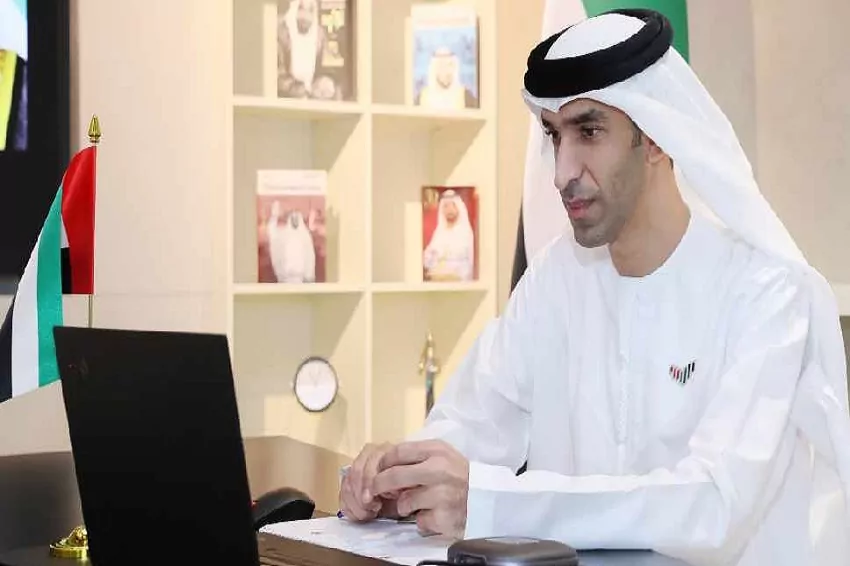

(C) ARN
According to Dr Thani Al Zeyoudi, the Emirati Minister for Foreign Trade, the United Arab Emirates and India are in the early stages of negotiations to trade non-oil commodities in Indian rupees.
India and the UAE recently signed a comprehensive free trade deal. China and India are two of the largest trading partners for Gulf Arab oil and gas producers, the majority of whose currencies are pegged to the dollar.
Moreover, when questioned by Reuters about the possibility of rupee trading with India, Al Zeyoudi responded, “Yes, we are in contact with the Indians.” He noted that the discussions were about non-oil goods.
In an interview conducted on the sidelines of the World Economic Forum in Davos, he stated, “They are in the early phases.”
Through a trade agreement, the UAE and India hope to double their two-way non-oil commerce to $100 billion over the following five years.
The topic of making non-oil trade payments in local currencies had been brought up by other nations, including China, according to the minister, but conversations were still in their early stages.
The majority of trade in the Gulf is done in US dollars, but nations like China and India are increasingly looking to pay in their own currencies for a variety of reasons, including reducing transaction costs.
The trend won’t happen immediately because we prepare our budgets in (US) dollars, according to Al Zeyoudi. There is a conversation going on, not just with India, but we are handling it in a way that doesn’t go against the interests of the country as a whole.
Any progress in the talks, he said, would have to make sense for all the parties concerned, and for the UAE, it would have to be beneficial for the expansion of the economy of the Gulf Arab nation.
Notably, the UAE has stated that while its key security and investment links are in the West, where Gulf Arab governments have long-standing strategic partnerships, particularly with the United States, its commercial contacts are increasingly looking to Asia.
Moreover, Zeyoudi stated that a deal with Cambodia was anticipated to be finalised in the first quarter after bilateral trade agreements with India and Indonesia.
As Beijing works to establish its currency abroad, the Chinese president travelled to Saudi Arabia in December where he took part in a Gulf Arab meeting and campaigned for yuan-based oil commerce.
The top oil exporter in the world and the largest Arab economy, Saudi Arabia, stated this week that it would be open to trading in currencies other than the US dollar.
If you are planning to fly via Malaysian Airlines or booked any of your travel through India or any of…
Music is a strongest medium to connect ourselves with the soul and any individual around the world because the emotion…
During the speech at the Financing Asia's Transition Conference the minister of environment in Malaysia called on ASEAN nations to…
The 61st Baeksang Arts Awards ceremony took place on 5 May 2025 at Seoul in South Korea and this glittering…
The fifth prisoner exchange took place on 6 May 2025 between Russia and Ukraine involving 205 prisoners and it is…
Established in the year 1921 and it still continues to showcase the legacy of this game through generations. This ‘Emperor’s…
This website uses cookies.
Read More